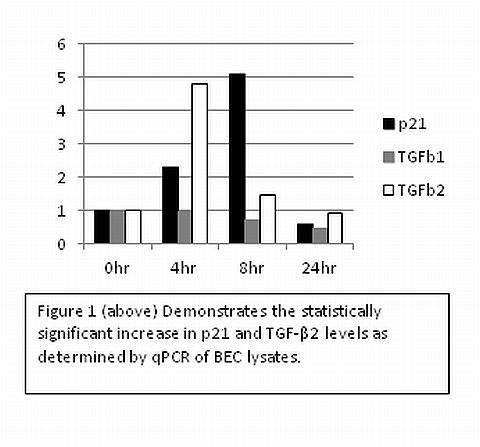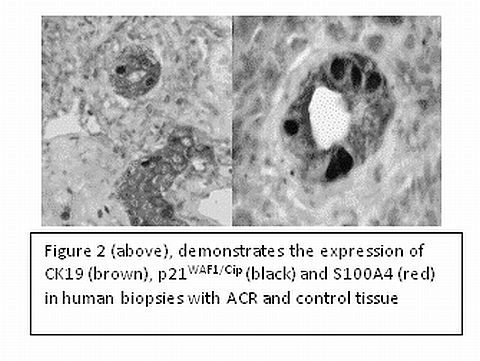Liver Transplantation: Do Senescence and Autophagy Modulate the Development of Chronic Pathology
ICM, Newcastle University, Newcastle upon Tyne, United Kingdom
Clinical Deanery, Newcastle University, Newcastle uon Tyne, United Kingdom
Meeting: 2013 American Transplant Congress
Abstract number: D1604
During the past 20 years there has been a reduction in the incidence of both acute cellular rejection (ACR) and chronic ductopenic rejection following liver transplantation. Reduction in these classical pathologies is associated with the emergence of newly recognised pathologies, for example chronic rejection in the absence of ductopaenia. Evidence suggests drugs such as rapamycin are associated with chronic allograft fibrosis. The current study was designed to assess the potential of early graft injury and current immunosuppressive drugs to promote biliary epithelial cell (BEC) senescence, modulate autophagy and increase the production of pro-fibrotic cytokines.
To establish whether early features of senescence were present in ACR, 35 biopsies of orthotopic liver allografts with biopsy proven ACR were analysed by immunohistochemistry. There was significant correlation between the senescence marker p21 and the BANFF grade (p=0.034). Application of oxidative stress to BEC in vitro showed a similar upregulation in p21 (p<0.01) with adoption of a senescent morphology. PCR and immunofluorescence analysis of BEC showed static TGF-b1 and increased TGF-b2 expression, confirmed by ELISA (P =0.001). Oxidative stress, FK506 and Rapamycin revealed increased levels of the autophagy marker LC3B (p<0.05). Rapamycin and oxidative stress, but not FK506, increased b6 integrin levels on BEC. Pharmacological inhibition of TGF-bR or autophagy; or peptide blockade of b6 integrin activity prevented in vitro TGF-b activity. These findings indicate that pleiotropic effects of immunosuppressive agents may play a key role in determining graft outcome. The ability of rapamycin to induce integrin dependent TGF-b signalling may explain its relationship to graft fibrosis.


To cite this abstract in AMA style:
Brain J, Thompson E, Jones D, Burt A, Kirby J. Liver Transplantation: Do Senescence and Autophagy Modulate the Development of Chronic Pathology [abstract]. Am J Transplant. 2013; 13 (suppl 5). https://atcmeetingabstracts.com/abstract/liver-transplantation-do-senescence-and-autophagy-modulate-the-development-of-chronic-pathology/. Accessed February 6, 2026.« Back to 2013 American Transplant Congress
